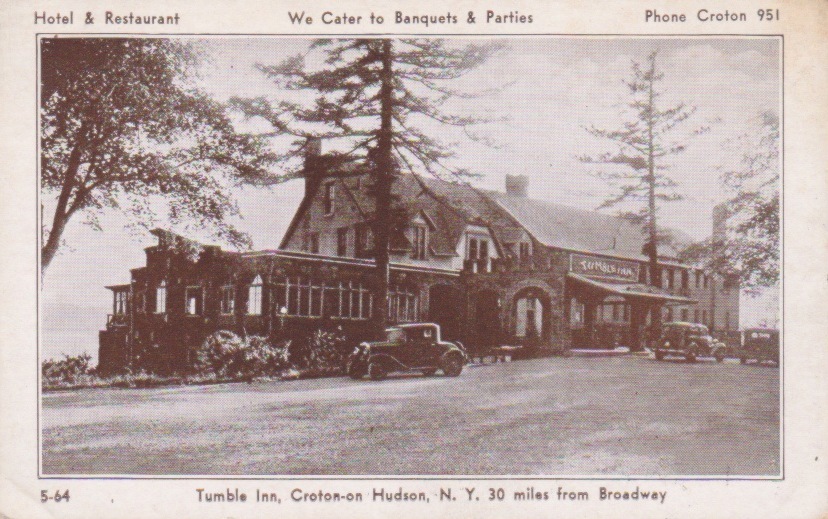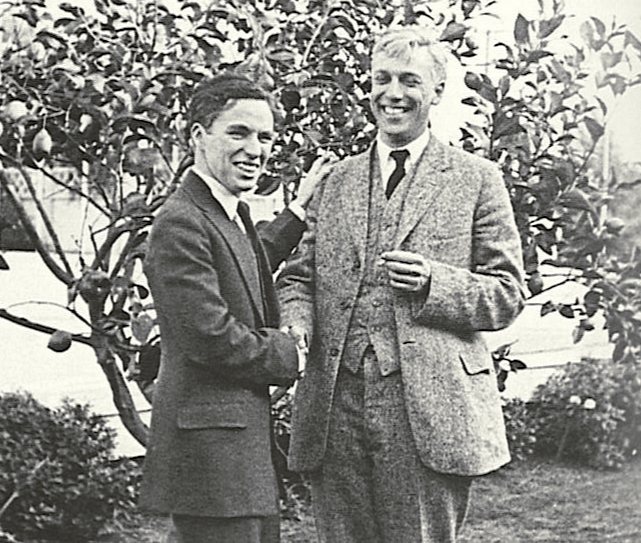Saturday, March 16, 2013
Florence Deshon, 2: Charlie Chaplin or Max?
CHRONICLES OF CROTON’S BOHEMIA
Florence was kept busy early in 1918 making eight films at the Vitagraph Studios in the Midwood section of Brooklyn . Her career went into what Eastman described as "a dead calm” later that year.Florence accompanied him on one of his visits to the Chaplin studio. Chaplin greeted them warmly. The trio soon became frequent companions, playing charades and other games at parties. Chaplin was obviously entranced by Florence 's quick mind and radiant beauty.
Florence ’s letters to him told of her film work and began mentioning Chaplin frequently: "Charlie is always sweet to me," one letter said. "I dined with Charlie on Christmas Eve, and he gave me a Christmas present," another reported.Florence underwent an operation that afternoon and spent the next days convalescing at the house in Croton. When she felt better, she took the train to New York to be with Chaplin, who had traveled east with her. This was a period when Florence --in Eastman's own words--"commuted between two lovers." Chaplin came up to Croton and took a room for a few days at the Tumble Inn, a roadhouse on the
Chaplin came up to Croton and took a room for a few days at the Tumble Inn, a roadhouse on the Albany Post Road . (The Tumble Inn was demolished in 1974. The Skyview Nursing Home now occupies the site.)
Florence and Charlie spent many hours there and walked the roads of Croton together. She could not persuade him to accompany her to Max's Mt. Airy
The love affair between Max Eastman and Florence Deshon would set the pattern for his later romances.
Initially, he was completely head-over-heels in love. The time they spent together--stolen from two blossoming careers--was a storybook romance.
Max, an inveterate philanderer, wrote: "For the first time in my life I experienced no carnal or romantic yearning toward the shapely breasts and delicately upward curving calves of the summer-clad girls who would pass me on the street. Night and day I was absorbed in my greatest love. I was, in fact and to my amazement, monogamous.
"Indeed I was so completely lifted into heaven by Florence 's body and spirit, that I feared for my own terrestrial selfhood, for my ambitions. Together with this fear of losing myself, I began also to experience a fear of losing her. I thought I saw evidences that she was drifting away from me."
 |
Movie stars sent "signed" photo cards like this to fans in the 1920s. This is Florence Deshon's card from the Billy Rose Theatre Collection at the New York Public Library.
|
In June, they moved into his Croton house for the summer, and she seemed to him almost like a wife. "The exhilaration and the tender joy of our days together," Max recorded, "our walks through the wakening wood, or over the hill roads to the great dam, and in the midst of those days the sudden thought, quickening my pulse, that the nights also were mine, made me believe in love in a way that I would once have called old-fashioned.
"The present was thrilling, the future was full of adventures for us both: 'Till death do us part,' if those words had been spoken, would not have been discordant during the early summer of 1918."
Despite these emotions, trouble was brewing in paradise. Once while Max was busy writing in the Croton house, Florence began preparing lunch. At an impasse in the piece, he left his desk to walk on Mt. Airy Road and sort out his thoughts. When he returned a short time later, he found her standing in the doorway in a black rage. She had turned off the stove, leaving the food half-cooked.
"What do you think I am, a servant?" she snapped. "Do you think I came up here to cook for you while you stroll around the countryside?" The storm soon blew over, and the couple made peace.
As loose as his ties to Florence were, one morning in late August Max was seized by a wish to be free of commitment. For no apparent reason, he abruptly lost interest. The relationship that seemed so idyllic only a few weeks before, suddenly became confining. In 1912, the same feeling had come over him toward his wife, Ida Rauh, to whom he was still married.
Max kept up a semblance of romantic love, but Florence must have sensed the change in his feelings. In July of 1919, when a contract offer came from Samuel Goldwyn in California she quickly signed with him and began work on a new film in August. In September, Max joined her there.
The reunited lovers found an apartment in Hollywood , where Max could continue to work on his book on the sense of humor. Once they settled into it, Max called on Charlie Chaplin. Eastman and Chaplin had met the previous winter after Max had spoken in Seattle in support of striking shipyard workers. They became fast friends, finding their political attitudes and intellectual (and sexual) interests compatible.
 |
| Charlie Chaplin welcomes Max Eastman to Hollywood. |
Max returned to New York by way of San Francisco , where he looked up a young woman whose poems he had published in The Liberator, the successor magazine to The Masses. They ended up going to bed together, but his conscience was only slightly troubled. After all, he and Florence had an agreement about mutual independence.
Chaplin would go to Florence 's apartment following his work at the studio and spend the evening with her. Before long, he was spending the night, as well. Hollywood gossips began talking about the comedian's romance with Florence .
She made three films for Goldwyn: The Loves of Letty, Duds, and Dollars and Sense, and two (Dangerous Days and The Cup of Fury) for Eminent Authors Pictures, a company formed by Goldwyn with novelist Rex Beach and other authors. After completing the fifth film, Florence was kept idle by the studio. Finally, Goldwyn told her that he wanted to break her contract, offering a thousand dollars and a ticket back to New York .
Three studios immediately made offers at double her Goldwyn salary. After making a Western for Fox titled The Twins of Suffering Creek, she joyfully telegraphed Max that she had agreed to work for veteran director Maurice Tourneur for $350 a week "in a big part." The film was Deep Waters. She would be playing opposite the male lead, Jack Gilbert, who would later become better known as silent film idol John Gilbert.
In the meantime, back in New York Max was far from sexually abstinent. He had become captivated by Lisa Duncan, one of the six foster daughters of Irma Duncan, herself a pupil of Isadora. Irma Duncan had begun adoption proceedings to facilitate their entrance to the United States in 1914, but actual adoption never took place.
Instead of answering Florence 's elated telegram with congratulations, Max sent her a letter declaring his love for Lisa. The cruelest blow was his account of watching her dance in Carnegie Hall: "I was entranced way beyond any thought by the perfection of her being."
In the summer of 1920, Florence reported to Max that she was not feeling well, and he convinced her to join him in Croton. She arrived on August 20, obviously unwell. He immediately made an appointment with his friend, Dr. Herman “Harry” Lorber, who treated most of Greenwich Village 's artists and intellectuals.
"You came just in time," Lorber told him, after examining Florence . "Only an immediate operation can save her from a blood-poisoning that might be fatal. I wonder what kind of a doctor she had out there [in Los Angeles ]."
Eastman did not seem to understand. Lorber made his diagnosis specific: "Florence has been pregnant for three months, and the fetus is dead. I don't know how long ago it died, but any delay might be fatal." Max realized that the child she was carrying had to have been fathered by Chaplin, whose predatory sexual appetite and habit of not taking precautions were well-known around Hollywood .
Neither Eastman or Chaplin exhibited any jealousy. "There was something royal in her nature that gave her the right to have things as she pleased," Max later wrote.

When the time came for her to decide whether to go back to California with Chaplin, she chose to remain in Croton with Max. Chaplin accompanied her to Grand Central Terminal, where they parted at the gate to the Croton train. "Don't mind these tears," he told her. "I'll be all right."